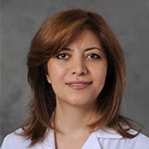Mentoring Mondays 2022November 14, 2022Session Highlights: "Start practicing now. Whether you are a resident or fellow - start learning the process now. If you want to know the process of how to solve a problem, then sit in on the meetings with the admins, the lab staff, go to the tumor board, and the meetings with your CMO. Get involved and see how the problem is solved from start to finish. Don’t be afraid to use your voice. Ask the questions and make suggestions and let your voice be heard. I was thrown into projects right out of training, and you learn to swim so that you don’t sink." "As a pathologist-in-training, I didn’t want to learn both AP and CP, but then I realized how short-sighted that was because it’s best to learn both the AP and CP sides of things so that you can see the process of how you reach resolution in treating the patient from start to finish." "Network now as a trainee, get to know others in the field and look for your mentors. Make your mistakes now so that when you are on your own you are already that much farther ahead." October 10, 2022Session Highlights: Q: "If you were hiring, what skill set would you look for in a candidate?" A: "Currently, we have access to data like we’ve never had before. So, we’re trying to build a strong quality program and the foundation is built on strong analytics. We’re looking to hire more folks who can pull and analyze that data to assist our providers. That’s probably a short-term goal. We’re looking for individuals with digital pathology and computational skill sets. Also, a lot of what we’re looking for are hardworking leaders who can communicate well and are proactive. Those soft leadership skills can set you apart as a member of our team." Q: "If I were to stay in academia, what steps could I take to get involved with industry consulting or a start-up?" A: "My impression is that strong clinical skills are what start-ups are looking for. They are looking for clinicians to guide them on product development and strategic roadmaps. They are looking for clinical guidance and input. What we can bring to the industry is workflow and keen insight into how hospitals work. If you are starting your career, it is important to have a strong practice component for a while; clinical workflow for at least 5 years will better set you up for industry." Q: "I come from coding - how do you find a way to weave that in on a daily basis because I still have an 'itch' and would like to find ways to use it." A: "Depends on who you ask - informatics is very heterogeneous and different across different institutions. I can do as much technical work or as little as I want. I haven’t programmed in depth for years and, at this point, since I work with a fantastic team, it’s faster for me to ask my team for help. I think it’s important to have that technical background because it helps you communicate with technical teams, appreciate limitations, and understand the tools you need. I think that a technical mindset helps. It provides a general understanding for things like the software lifecycle and why something might take time or be challenging to solve, etc. There’s value in that, but I still see many people be successful without technical backgrounds. Many of those people are excellent communicators and leaders. That is what is so great about pathology informatics - you can get your hands dirty and get into the code and, at the same time, appreciate how leadership and teamwork is equally important. If you hit the limits of your knowledge, you can rely on them too." Q: "Is there a particular way to train someone for a job in pathology informatics?" A: "I’ve seen leaders in different forms in different environments. So, it’s hard to say how I would train someone to do the job. I think a strong background in medicine and an understanding of technical skillsets helps one to understand what tools are available and being able to work and lead teams. In our program, we emphasize leadership skills: humility, how to build a team, how to have difficult conversations, how to get acclimated to friction, how to face challenges and get out of your comfort zone. You also need to know when to lean on the technical skills or your team." September 12, 2022Emcee: David McClintock, MD Session Highlights: “One of biggest issues with the pipeline and training is giving medical students and residents an opportunity to have facetime with informatics. Trainees don’t get exposure to informatics in the time-based and rigid confines of medical school. Residents make time to read slides, but not learn about the informatics behind them or ahead of them. So, as mentors, we need to find creative ways to expose trainees to informatics. Surveys show that many pathology trainees have little understanding of informatics, and how critical it is to pathology – that is a problem.” Q: “What advice would you have for students that are looking into getting into the informatics part of pathology” “We’ve all been watching digital path for a long time and there are advantages for multiple hospital systems like ours. But, what’s really going to push this all forward is AI and machine learning, which will allow us to do things like quantifiable histo-chemistry and will provide much more accurate results than the human eye is capable of assessing. Whatever the disease might be, we’ll have a lot of opportunities for multi-disciplinary work and the need to understand what predictive models are built upon.” Q: “Is formal training necessary or is self-training sufficient?”
June 13, 2022Mentor:Emcee: Lisa-Jean Clifford (COO and CSO, Gestalt Diagnostics) Session Highlights: "When people purchase The Healing Art of Pathology book from the CAP, the hope is that people will read it, be inspired by it, then share it with or pass it on to others. The making of this book made me a better pathologist -patient centered, mindful, grateful, and burn-out resistance. I hope you will also be benefited from the magnificent power of The Healing Art of Pathology and live a positive and gratifying life." "The Healing Art of Pathology shows that when we connect with our patients - a bigger purpose other than ourselves - our work as pathologists will be transformed from a job to a way of living. What a privilege, honor, and joy to be a pathologist. It is one of the unique professions that has boundless opportunities to combine science, art, creativity, and humanity with the intent of lightening our burdens of life." "Pathology and Laboratory Medicine (PLM) is the central nervous system (CNS) to health care, very much like the CNS of a human. For PLM to remain the enabler of quality and efficient patient care, pathologists must embrace molecular pathology, digital pathology and AI." "For the next generation of pathologists, your job will be more complicated and harder as the precision medicine advances. Please be aware that pathologists augmented with molecular pathology and pathology informatics will be better prepared for the future." "I agree with Dr. Michael Becich that we should challenge the younger generation to build the ‘diagnostic cockpit’ that makes pathologists ‘knowledge engineers’ – the critical CNS part of the care team – to influence and have impact on patient care and patient outcomes. Although there is no one silver bullet, leadership matters. We challenge the ones who are in leadership positions to understand today’s pathology and how it must be powered by digital pathology and pathology informatics. We encourage everyone to be the catalyst for change and facilitator for collaboration to move the field of modern pathology forward." May 9, 2022Mentor:
Michael Becich, MD, PhD
Chairman and Distinguished University Professor, Department of Biomedical Informatics University of Pittsburgh Medical Center
Emcee: Lisa-Jean Clifford (COO and CSO, Gestalt Diagnostics) Session Highlights: "API and Pathology Informatics leadership needs to encourage young people to present their science at the PI Summit even if it’s in the early stages of development. It is important for trainees to be encouraged to join API and attend the Path Info Summit as it increases their chances of having a career in Path Info by 60%.... Pathology Informatics Leaders already established in the field have to encourage pathology residents and fellows (and even college and high school students via STEMM) to consider Pathology and Pathology Informatics as a career path." Q: "Thank you so much for sharing your time with us. I was wondering what informatics-based skill do you find most valuable (or are actively looking for) in your new hires?" Q: "When you are recruiting a hire for UPitt, what are your considerations in comparing candidates who learned on the job vs. a candidate who did a structured program such as an informatics fellowship? Is board-certification important to you?" Q: "You mentioned companies getting cold feet - what do you think about the role of venture capital in start-up development?" April 11, 2022Mentor:
Emcee: Lisa-Jean Clifford (COO and CSO, Gestalt Diagnostics) Session Highlights “When choosing a fellowship program, while well-known institutions have benefits, it’s more important to understand the institution's IT infrastructure and IT governance: what is their EMR? How up-to-date are their systems? what does their funding look like for IT projects?” “Management is hard and informatics is about ‘change management.’ So, you have to be able to work and communicate with different groups of people at different levels of management, such as leadership, middle-management, and front-line users. You need to understand why the change is needed and understand the underlying reasons for resistance.” “The job market is always changing, and every year is different. I recommend taking the job that is the most interesting to you for now, even if it’s not exactly what you want. Then, when you get there, collaborate with people and keep your eyes open for new opportunities. If the institution is not a right fit, don’t stay longer than five years but find a new opportunity and make that transition. It’s about finding your passion and building it as you go.” “The most important thing to learn in pathology informatics is the workflow analysis to understand processes. The other important point is monitoring the result after implementation and seeking continuous feedback from users so that you can continue to improve the process. I always invest the time to study the workflow carefully, and it helps me understand the possible issue and proactively resolve them. I am proud to say that I have never had to pull back after going live with a project owing to meticulous workflow analysis ahead of implementation.” March 14, 2022Mentor:
Emcee: Drew Hughes, MD, PhD (Washington University School of Medicine, CP Resident) Session Highlights “Informatics is a lot more than just math, there’s a human element to it. It is leadership, leadership across the health care system." Q: What do you wish you had known early in your career? Q: How do you keep yourself current? Q: What is your rule-of-thumb approach to triage/identify medical versus informatics questions? Q: How do you prove your worth in your institution? February 14, 2022Mentor:
Emcee: Amrom Obstfeld, MD, PhD (Children's Hospital of Philadelphia) Session Highlights
"A lot of work cannot be published in industry vs. in academics. It’s nice to be invited to this mentoring event because it makes me feel part of the community." "Every industry is different and while I work for a very large company there are many different sizes of companies that focus on a variety of areas and you will see people float in and out between academia and industry." "What skills do you need as a resident? Find projects that you are passionate about or that will keep your interest to develop the skills that you need – project-based learning is key." January 10, 2022Mentor:
Session Highlights: “Not all mentors are good leaders. You can learn just as much from a bad leader as you can from a good leader.” “Rather than pursue a particular skill set in Pathology Informatics, I encourage you to find a question that you are curious about, or a problem that you have come across in healthcare, and consider learning skills that might help you solve that problem. You want to learn how to learn – that is what you want to master – and not worry too much about a particular skillset.” “I wouldn’t say that coding or knowledge of coding is integral to the practice of PI. Instead, an informaticist plays the important role of understanding how data is collected, shaped, and interpreted. It is our role to take leadership in acquiring and presenting data in a way that is accurate and impactful.” “Find a project that you are passionate about – something that is important to you and work on it - even if you aren’t the lead informaticist at your institution.” |







